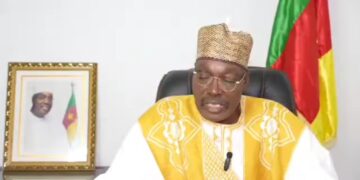![]()
The Lagos State Government has dismissed social media claims suggesting that the state is “smelling,” reaffirming its commitment to a cleaner, more sustainable environment.
The Commissioner for Environment and Water Resources, Mr. Tokunbo Wahab, in a statement on Sunday, described the allegations as misleading, emphasizing the state’s ongoing efforts to modernize waste management, improve air quality, and implement structured sanitation systems.
He stated, “Lagos is not smelling; it is evolving—toward sustainable waste processing, modernized landfill management, cleaner waterways, and structured sanitation systems.”
He stressed that Governor Babajide Sanwo-Olu’s administration remains dedicated to tackling waste and sanitation challenges with long-term solutions rather than political rhetoric.
The state government outlined several measures to enhance environmental sustainability. Over 50 air quality monitors have been installed across Lagos to track emissions from industries, transport, and households.
The Lagos Waste Management Authority (LAWMA) has extended services to hard-to-reach communities, introducing tricycle compactors in Ibeju-Lekki on a pay-as-you-go model, with 500 more units planned for deployment.
The Olusosun and Solous III landfills will be converted into modern Transfer Loading Stations (TLS) within 18 months to facilitate waste sorting, compaction, and recycling.
A new waste-to-energy facility in Epe will process 2,500 tonnes of waste daily, generating 60–80 megawatts of electricity for the Lagos power grid.
The state has banned styrofoam food packs and is gradually phasing out single-use plastics, encouraging manufacturers to adopt sustainable alternatives under the Extended Producer Responsibility (EPR) program.
The Lagos State Environmental Protection Agency (LASEPA) has reduced industrial effluent discharge into waterways by 25% through stricter enforcement. Three Modular Septage Pre-Treatment Plants (MSPPs) have been deployed to treat fecal sludge before discharge.
Fifteen thousand street sweepers have been deployed daily to clean highways, inner roads, and markets, while 150 new public toilets are under construction, with an additional 250 planned through public-private partnerships.
The government is also collaborating with local councils to maintain over 1,710 existing public toilets. In a bid to increase greenery across the state, the “Trees for Lagos” campaign aims to plant 50,000 trees over the next two years, with trees strategically placed along highways, railway routes, industrial zones, schools, and hospitals.
Commissioner Wahab emphasized the government’s commitment to innovative waste recovery, recycling, and energy generation projects.
He added that Lagos has signed multiple Memoranda of Understanding (MoUs) with international partners to drive environmental reforms, saying, “Our administration is ensuring that Lagos remains at the forefront of waste recovery, recycling, and sustainable energy solutions.”

























